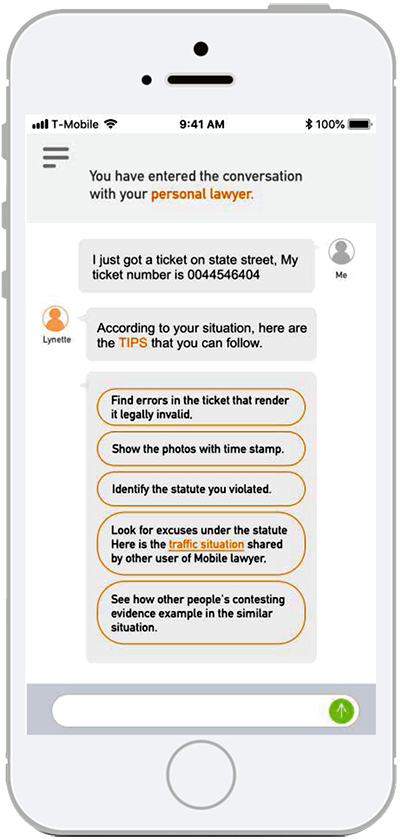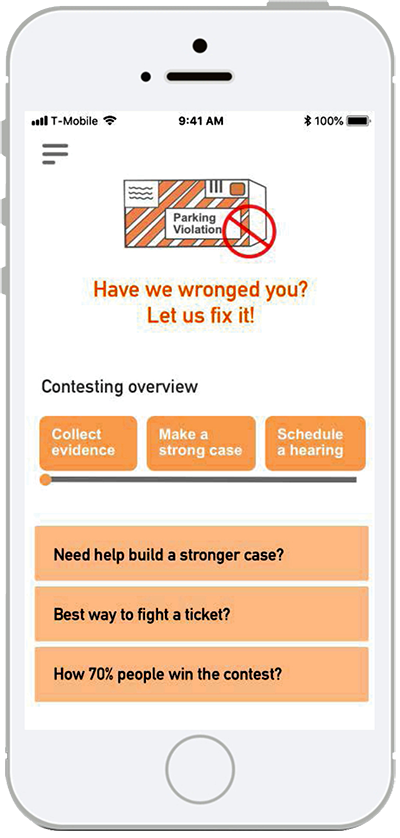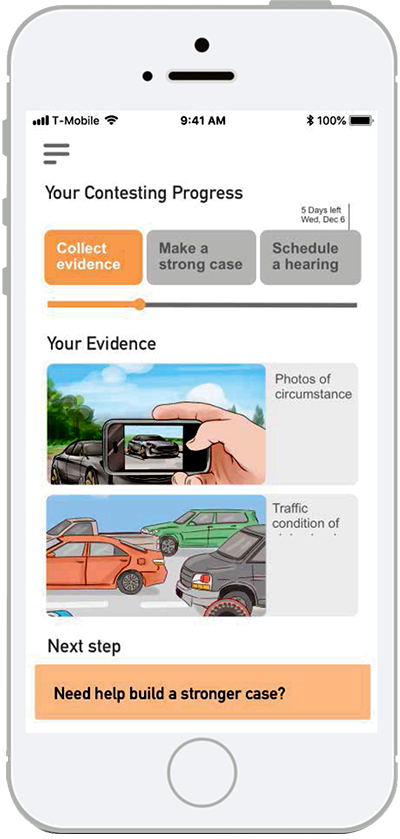Could good design solve Chicago’s longstanding problems with unfair ticketing practices?
An Institute of Design student team led by Visiting Industry Professor Mark Jones (M.Des. ’95) is proposing new innovations that could provide economic relief to low-income citizens burdened by parking ticket debt.
During the fall 2019 semester, Jones and 18 students worked with Chicago City Clerk Anna Valencia as part of the Fines, Fees & Access Collaborative, a group composed of city departments, community groups, elected officials, and academic institutions. The collaborative was formed in response to a series of news reports in 2018 detailing the extent to which Chicago’s parking and city sticker ticketing practices have a disproportionately negative economic effect on low-income residents.
“Having academic partners pushes us to think outside of the box. That’s especially from the user end, which I think is really important for the government to look at more,” says Valencia.
How It Works
ID’s Mobile Lawyer in Action



Jones’s students interviewed roughly 60 residents to learn about their interactions with the city in regard to parking tickets. They found many vocal residents who bemoaned a lack of clear and easy-to-access information from the city. The ID team devised a suite of solutions to improve communication between the city and citizens. One example is a “Tailored Ticket Roadmap,” an online portal that graphically breaks down how much money an individual owes and important dates—for contesting or when a ticket may double, for example—to offer residents a better sense of how to approach their debt.
“The current ticket system is such that each ticket is its own entity. People with multiple tickets can’t get a sense of the bigger picture. This is a response to what we heard from people dealing with the city systems,” says Jones. “As good designers [the students] responded with something easier to navigate and understand.”
Similarly, the team proposed a text-alert system, where residents can text the city to receive reminders about when they need to move their cars in certain parking zones, alleviating issues with confusing or unclear signs, or even simple forgetfulness. Meanwhile, a “mobile lawyer” program could provide unfairly ticketed individuals—especially individuals without resources to challenge a ticket—with guidance on how to contest.
For Chicago to completely revise its ticketing practices, it will need to continue on its trajectory of instating policy reforms and ordinances. Still, Jones and Valencia believe clearer and more accessible communications can ease the burden on lower-income citizens and help restore trust between city hall and Chicagoans.
“The solutions the students came up with are a mixture of preventative measures, and those that say, ‘If we made a mistake, we want to help fix it,’” says Jones. “I think those are both good approaches that would say that the city is trying the best it can.”